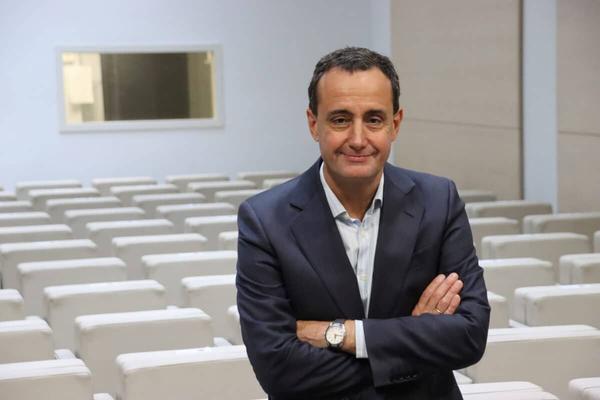Alejandro Sánchez del Campo, lawyer: "Knowing how artificial intelligence will allow us to be more efficient"
"Many of the LegalTech solutions are based on artificial intelligence, knowing how artificial intelligence will allow us to be more efficient and have clearer which products or services makes sense to implement in our office or advice," says Alejandro Sánchez del Campo, lawyer, lawyerTechnology and Innovation Expert.
This lawyer directs the master's degree in digital law, innovation and emerging from the illustrious Bar Association of Madrid (ICAM), which starts on October 15.
In statements to Confilegal explains some of the keys to this formation and the challenges and challenges that the digital innovation to the legal sector pose.
"Neither technology nor society wait for a norm, to evolve and, therefore, the task that touches us lawyers is to respond to those new realities that arise, which will then regulate and there will be a jurisprudence".
In this context, a professional "must know how you can use the technological tools that are available to give better customer service".
In this training, given by the ICAM Studies Center, issues such as cybersecurity, data protection and privacy, electronic commerce, audiovisual law or legal mechanisms for the best protection of technological innovation will be addressed.
Sánchez del Campo ensures that in recent years the demand for professionals experts in data and privacy "has grown in an exponential way".

The same, he adds, "will happen with blockchain type technologies, cryptoactives, etc ... the demand will grow as more products and services are coming out".
This situation causes that "the offices, more and more, are creating areas of practice in that sense or reinforcing what they had and the companies exactly the same".
The General Data Protection Regulation (RGPD), which has just turned three, had a lot of impact.Now there are other regulations in this sector, remember.
An example of this is the artificial intelligence regulation project, the Cryptactive Regulations or the Copyright Directive.
Therefore, he thinks it is a good time to specialize in digital law.A training, in his opinion, interesting both for newly graduated lawyers and for professionals who have been exercising law years have been exercising for years.
«It is the best choice to be able to advise on these digital law issues in a coherent way.It allows you to enter these issues with solvency and security ».
«The development of technology itself raises a series of legal problems»
Remember that "Legaltech is already playing and will play a very relevant role, there are already tools that improve the way in which legal services are provided".
"The development of technology itself poses a series of legal problems that we are seeing more and more," he says.
In this scenario, "the clients of the offices and the companies will increasingly have consultations derived from the legal aspects," he emphasizes.
The Master is organized in 13 modules in which, from a theoretical and practical point of view, different axes of digital law will be addressed.
These work axes are organized in (1) regulatory challenges and challenges in a global and hyperconnected world;(2) Legal mechanisms for the best protection of technological innovation, intangible assets and business secrets;(3) Electronic identification, evidence and digital research.
Likewise, (4) information and data as strategic assets, (5) Advertising and Digital Marketing, (6) Cybersecurity, (7), Innovation, (8) Electronic Commerce, Digital Services and Market, (9) Intellectual Property andDigital environment, (10) Artificial Intelligence, Algorithmic and Law Business, (11) Audiovisual Law, (12) Blockchain and regulatory implications and (13) LegalTech, Fintech and Regtech.
The objective is to respond to the new needs of customers and to position themselves competitively in front of other professionals and signatures.
This news talks about:
Blockchainderecho digitalIlustre Colegio de Abogados de Madrid (ICAM)inteligencia artificialLegaltechtransformación digitalNoticias Relacionadas:Sol Muntañola, Molins Defensa Penal y Morales Abogados, montan una ‘startup’ que protege la privacidad digital de personas físicas y jurídicasEvitar su exclusión social: Reclaman fondos europeos para alfabetizar en la digitalización a las personas mayoresEl protocolo suscrito entre creadores y plataformas digitales bloqueó 869 dominios y subdominios de Internet en 2021El Ministerio de Justicia recibe el reconocimiento de Naciones Unidas como servicio públicoLa Abogacía reclama en el Congreso de los Diputados una reforma de la Ley de Asistencia Jurídica GratuitaMontero defiende la creación de centros de crisis en cada provincia para atender a las víctimas de violencia de género